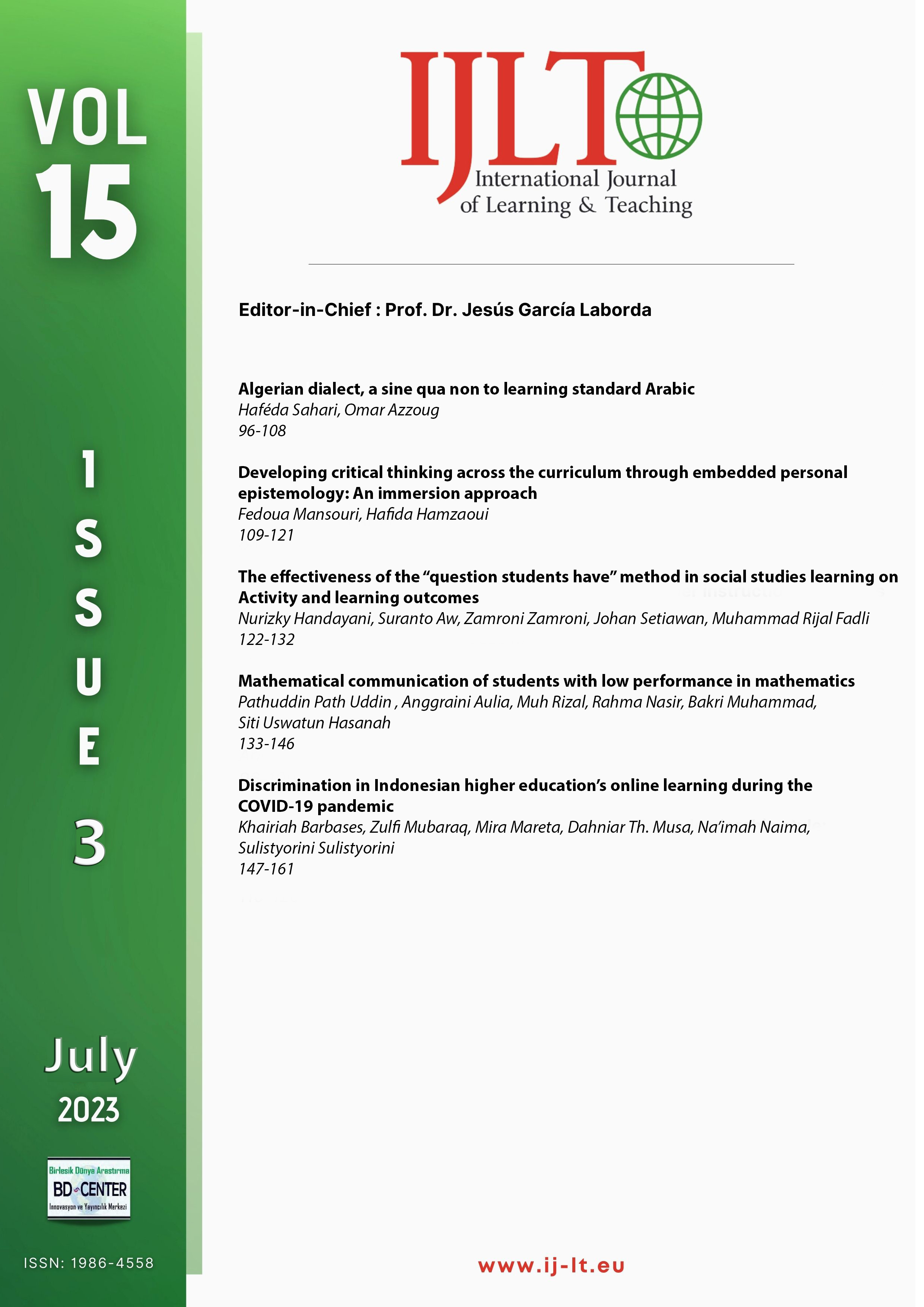Algerian dialect, a sine qua non to learning standard Arabic
Main Article Content
Abstract
There is much concern regarding the linguistic distance between the home language and the school tongue of the Algerian pupil. However, this concern does not appear to filter down into in-service teacher training and so this apparent lack of training may result in a lack of awareness about representing bidialectalism within classroom displays. The paper aims to describe the various teaching activities observed during the Fall semester of 2020 in two different classrooms with two teachers (respectively T1 and T2). The intention is to show how the three learning areas that are covered in grade 1, namely, Numeracy, Literacy, and Life Skills are approached and taught daily in these classrooms with specific reference to the various language activities we observed. The participants included two teachers and students in a primary school named El Arbi-Etbessi situated in Tlemcen. Data was collected using the observation method and questionnaires. The results reveal that obligatory monolingualism causes educational problems for Algerian children and the government on different scales.
Keywords: Arabic; cognitive development; dialect; education; mother-tongue; MSA
Downloads
Article Details

This work is licensed under a Creative Commons Attribution-NonCommercial-NoDerivatives 4.0 International License.
Authors who publish with this journal agree to the following terms:
- Authors retain copyright and grant the journal right of first publication with the work simultaneously licensed under a Creative Commons Attribution License that allows others to share the work with an acknowledgement of the work's authorship and initial publication in this journal.
- Authors are able to enter into separate, additional contractual arrangements for the non-exclusive distribution of the journal's published version of the work (e.g., post it to an institutional repository or publish it in a book), with an acknowledgement of its initial publication in this journal.
- Authors are permitted and encouraged to post their work online (e.g., in institutional repositories or on their website) prior to and during the submission process, as it can lead to productive exchanges, as well as earlier and greater citation of published work (SeeThe Effect of Open Access).
